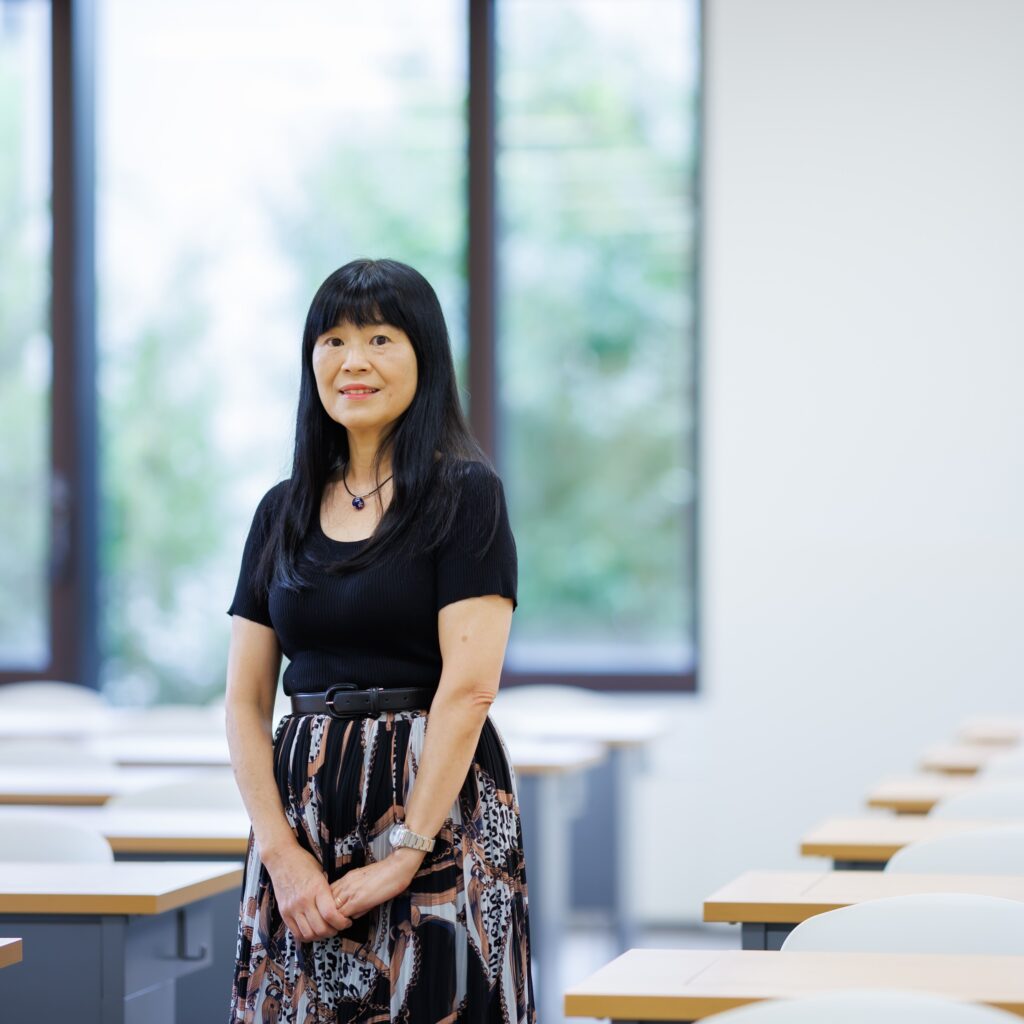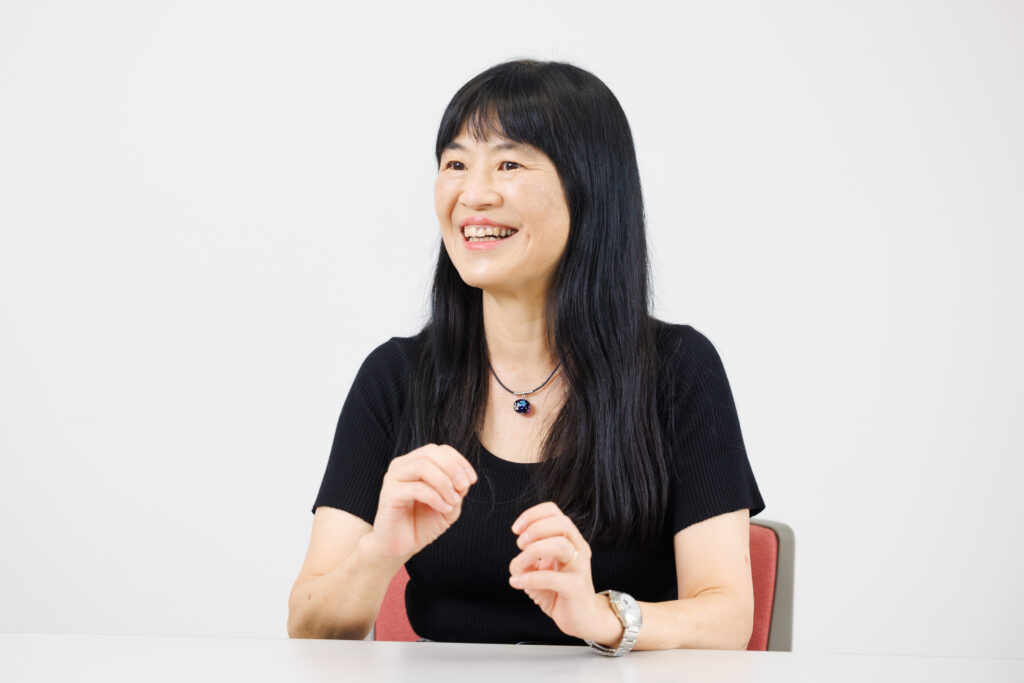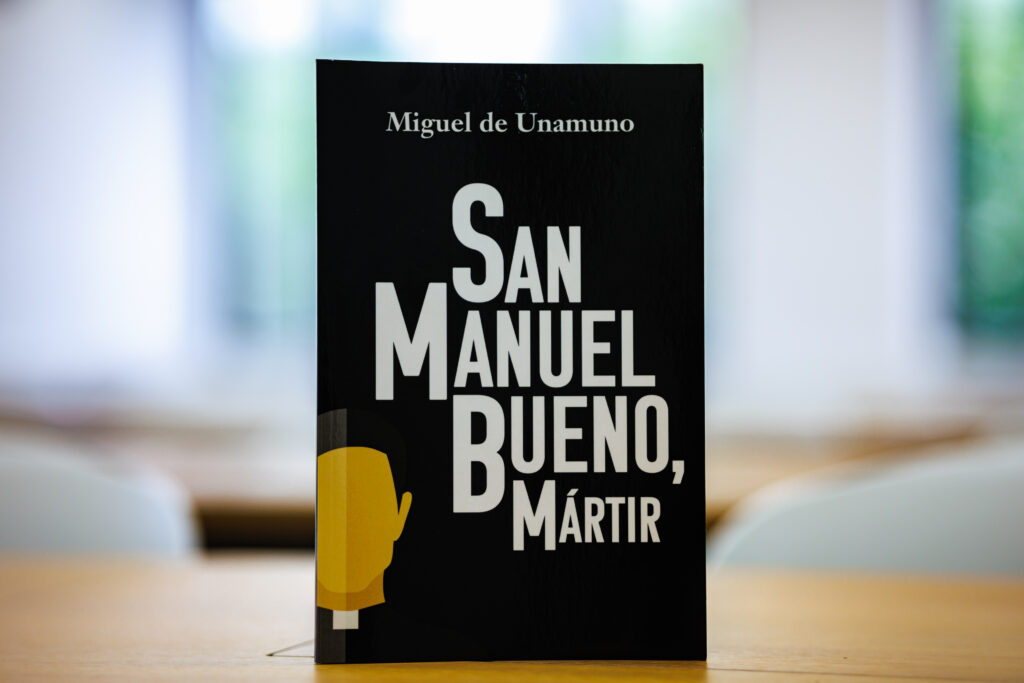
Professor Yoshimi Hiroyasu of the Center for Language Education and Research examines teaching methods for Spanish and explores courses that provide a practical approach to language. She explains the actual steps in creating the textbooks that she has focused on, and the wonder of the spoken word that is rarely conveyed in speech translation.
My area of expertise is the Spanish language, and I have been focusing on exploring different teaching methods. Students other than those majoring in foreign languages have long viewed language classes as being boring or worthless. My aim is to show that students can acquire a valuable tool if they are willing to study languages properly within a given timeframe. I am always mindful of the best learning methods that are available to achieve this.
Creating effective textbooks for beginners of Spanish

It is common in the West to think that one can speak Spanish after a short time studying the language—even beginners do not seem to hesitate trying to using words they have just learned. The reason for this is because classes are structured around a practical approach to language learning. Unfortunately, this is not the objective of language classes in the majority of cases in Japan.
In 2002, my colleagues and I released a textbook for college students called “Vivir@España. es (Geirin Shobo).” We structured the book using a range of one-on-one conversations or group scenarios to help readers understand the language without focusing too much on the grammar involved. The aim of this was to reduce the reluctance to study grammar, and instead use actual day-to-day situations to learn grammar rules naturally.
Since then, I have been given the opportunity to take part in developing a range of textbooks, self-study books, grammar books, and dictionaries, as well as to teach Spanish language courses on Japanese NHK radio several times.
A textbook titled “Muy bien” that I published with two native Spanish speakers is being used extensively these days, as it is structured to make learning Spanish fun for beginners—students can choose topics that suit their particular circumstances or organize activities for practicing grammar without focusing on the grammar itself.
One misconception people have with this approach is that they think I am only teaching them conversation instead of grammar rules—in reality, I am focusing on practical language skills that they can actually put into use. Yet this is not a matter of whether grammar is more important or conversation is more important, as was once said.
There are more students seeking to study Spanish with the courses available at Sophia University. There is no doubt that my courses provide a valuable experience.
Communicating with others is even more valuable now
Learning another foreign language in addition to English is beneficial for students in any field. After graduating, joining the workforce and meeting people from Spanish-speaking countries on business trips, simply being able to say “Hello” in Spanish can lead to smiles all around and bring people so much closer.
There are also people who feel a diminishing need to learn foreign languages as further advances are made with machine translation technology—but I am confident that this will not be the case.
I am positive that improvements in technology will make communicating using foreign languages even more interesting, yet even if speech translation becomes the norm, machine-based voice does not feature the same emotional appeal that the human voice does. I think it will be important to incorporate machine translation in a smart way and use foreign languages to communicate with others.
In addition to Spanish, Sophia University provides courses for learning 22 languages, including Asian and African ones. Lecturers at the Center for Language Education and Research, where I work, examine the most efficient types of courses to offer for people starting out with studying languages. As one of the lecturers involved in planning these courses, I hope to make a more concerted effort moving forward.
The book I recommend
“San Manuel Bueno, Mártir”
by Miguel de Unamuno

This work by a Spanish philosopher was my textbook in my third year of college. The words and contents were so difficult that I almost gave up studying Spanish, but the sense of achievement I felt when I finally finished reading it was like none I had ever felt before. That was the moment when I realized that foreign languages had become a part of me.
-
Yoshimi Hiroyasu
- Professor
Center for Language Education and Research
- Professor
-
Graduated from the Department of Hispanic Studies, Faculty of Foreign Studies, Sophia University, and received her M.A. in Linguistics at the university’s Graduate School of Languages and Linguistics. Professor at Kanagawa Prefectural College of Foreign Studies, Adjunct Professor at Sophia University, and Professor from 2015.
- Center for Language Education and Research
Interviewed: August 2022